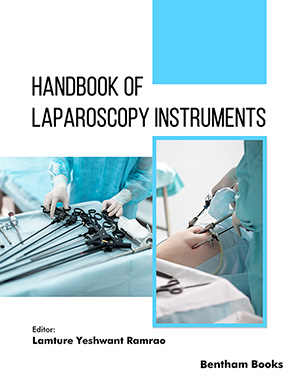Abstract
Objective. This research aims to determine whether residence (rural vs. urban) at different life stages (childhood, adulthood, and late life) is associated with increased risk of incident dementia in a population-based cohort of older Spaniards. Methods. In this prospective study, 2,711 participants aged 65 years and older were assessed at baseline and 3 years later. All cases of incident dementia were diagnosed using DSM-IV criteria. The relationship between residence and the relative risk of dementia was analysed using Cox's regression models. Demographics, comorbidity index, consumption (tobacco / alcohol) and doubtful dementia diagnosis were considered as possible confounders. Results. At the three-year follow-up, 91 cases of dementia were detected. Lower education and occupational attainment were associated with a higher incidence of dementia three years later. Rural residence in adulthood was associated with a significantly higher risk of dementia at the follow-up. Childhood rural residence revealed a marked trend for risk of dementia (p = 0.08), but it was nonsignificant in later life. The risk of dementia was considerably higher for the rural/low-education group than for the urban/high-education group, for both childhood and adulthood residence. Finally, people from areas with the lowest socio- economic status Arévalo (rural, blue-collar) and Margaritas (urban, blue-collar) showed higher risk of dementia than people from Lista (urban, mixed white/blue collar). Conclusion. In this cohort, early and mid-life stages rural residence was a risk factor for dementia, but not later-life rural residence. The rural residence effect was noticeably higher in people with a lower educational level.
Keywords: Cognitive reserve, dementia, education, life stages, risk factors, rural residence.
Current Alzheimer Research
Title:Childhood and Adulthood Rural Residence Increases the Risk of Dementia: NEDICES Study
Volume: 12 Issue: 4
Author(s): Israel Contador, Felix Bermejo-Pareja, Veronica Puertas-Martin and Julian Benito-Leon
Affiliation:
Keywords: Cognitive reserve, dementia, education, life stages, risk factors, rural residence.
Abstract: Objective. This research aims to determine whether residence (rural vs. urban) at different life stages (childhood, adulthood, and late life) is associated with increased risk of incident dementia in a population-based cohort of older Spaniards. Methods. In this prospective study, 2,711 participants aged 65 years and older were assessed at baseline and 3 years later. All cases of incident dementia were diagnosed using DSM-IV criteria. The relationship between residence and the relative risk of dementia was analysed using Cox's regression models. Demographics, comorbidity index, consumption (tobacco / alcohol) and doubtful dementia diagnosis were considered as possible confounders. Results. At the three-year follow-up, 91 cases of dementia were detected. Lower education and occupational attainment were associated with a higher incidence of dementia three years later. Rural residence in adulthood was associated with a significantly higher risk of dementia at the follow-up. Childhood rural residence revealed a marked trend for risk of dementia (p = 0.08), but it was nonsignificant in later life. The risk of dementia was considerably higher for the rural/low-education group than for the urban/high-education group, for both childhood and adulthood residence. Finally, people from areas with the lowest socio- economic status Arévalo (rural, blue-collar) and Margaritas (urban, blue-collar) showed higher risk of dementia than people from Lista (urban, mixed white/blue collar). Conclusion. In this cohort, early and mid-life stages rural residence was a risk factor for dementia, but not later-life rural residence. The rural residence effect was noticeably higher in people with a lower educational level.
Export Options
About this article
Cite this article as:
Contador Israel, Bermejo-Pareja Felix, Puertas-Martin Veronica and Benito-Leon Julian, Childhood and Adulthood Rural Residence Increases the Risk of Dementia: NEDICES Study, Current Alzheimer Research 2015; 12 (4) . https://dx.doi.org/10.2174/1567205012666150324181327
| DOI https://dx.doi.org/10.2174/1567205012666150324181327 |
Print ISSN 1567-2050 |
| Publisher Name Bentham Science Publisher |
Online ISSN 1875-5828 |
Call for Papers in Thematic Issues
New Advances in the Prevention, Diagnosis, Treatment, and Rehabilitation of Alzheimer's Disease
Aims and Scope: Introduction: Alzheimer's disease (AD) poses a significant global health challenge, with an increasing prevalence that demands concerted efforts to advance our understanding and strategies for prevention, diagnosis, treatment, and rehabilitation. This thematic issue aims to bring together cutting-edge research and innovative approaches from multidisciplinary perspectives to address ...read more
Current updates on the Role of Neuroinflammation in Neurodegenerative Disorders
Neuroinflammation is an invariable hallmark of chronic and acute neurodegenerative disorders and has long been considered a potential drug target for Alzheimer?s disease (AD) and dementia. Significant evidence of inflammatory processes as a feature of AD is provided by the presence of inflammatory markers in plasma, CSF and postmortem brain ...read more
Deep Learning for Advancing Alzheimer's Disease Research
Alzheimer's disease (AD) poses a significant global health challenge, with an increasing number of individuals affected yearly. Deep learning, a subfield of artificial intelligence, has shown immense potential in various domains, including healthcare. This thematic issue of Current Alzheimer Research explores the application of deep learning techniques in advancing our ...read more
Diagnostic and therapeutic biomarkers of dementia
Dementia affects 18 million people worldwide. Dementia is a syndrome of symptoms caused by brain disease, usually chronic or progressive, clinically characterized by multiple impairments of higher cortical functions such as memory, thinking, orientation, and learning. In addition, in the course of dementia, cognitive deficits are observed, which often hinder ...read more
 40
40 2
2
- Author Guidelines
- Graphical Abstracts
- Fabricating and Stating False Information
- Research Misconduct
- Post Publication Discussions and Corrections
- Publishing Ethics and Rectitude
- Increase Visibility of Your Article
- Archiving Policies
- Peer Review Workflow
- Order Your Article Before Print
- Promote Your Article
- Manuscript Transfer Facility
- Editorial Policies
- Allegations from Whistleblowers
- Announcements
Related Articles
-
Potential Targets for the Development of Novel Antidepressants: Future Perspectives
CNS & Neurological Disorders - Drug Targets Why Fish and Fruit are Better than Fish and Chips in the Aging Process
Current Nutrition & Food Science Disruption of Circadian Rhythms and Sleep in Critical Illness and its Impact on the Development of Delirium
Current Pharmaceutical Design Role of Estradiol and Progesterone in HIV Susceptibility and Disease Progression
Mini-Reviews in Medicinal Chemistry AMPK Function in Aging Process
Current Drug Targets Etiology of Neuroinflammatory Pathologies in Neurodegenerative Diseases: A Treatise
Current Psychopharmacology Diet and Brain Health: Which Role for Polyphenols?
Current Pharmaceutical Design Machine Learning and Social Network Analysis Applied to Alzheimer's Disease Biomarkers
Current Topics in Medicinal Chemistry Brain Targeting of siRNA via Intranasal Pathway
Current Pharmaceutical Design Tryptamine Induces Axonopathy and Mitochondriopathy Mimicking Neurodegenerative Diseases via Tryptophanyl-tRNA Deficiency
Current Alzheimer Research Plant Troponoids: Chemistry, Biological Activity, and Biosynthesis
Current Medicinal Chemistry Recent Developments in the Discovery of Novel Antipsychotic Agents Modualating Dopamine and Serotonin Receptors
Current Drug Targets Effect of Antipsychotic Drugs on Cerebrovascular Morbidity and Mortality: A Systematic Review
Current Drug Therapy Modifiable Midlife Risk Factors for Late-Life Cognitive Impairment and Dementia
Current Psychiatry Reviews LRRK2 Kinase Inhibition as a Therapeutic Strategy for Parkinson’s Disease, Where Do We Stand?
Current Neuropharmacology Tau Truncation is a Productive Posttranslational Modification of Neurofibrillary Degeneration in Alzheimer’s Disease
Current Alzheimer Research Ubiquitin-Proteasome Pathway Components as Therapeutic Targets for CNS Maladies
Current Pharmaceutical Design The State of the Problem of Achieving Extremely Low LDL Levels
Current Pharmaceutical Design Alzheimer's Disease and the Routine Clinical Use of CSF Biomarkers
CNS & Neurological Disorders - Drug Targets Consciousness, Functional Networks and Delirium Screening
Current Aging Science


























